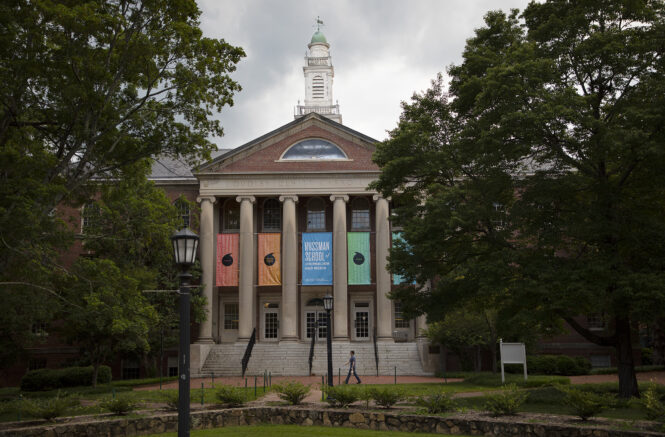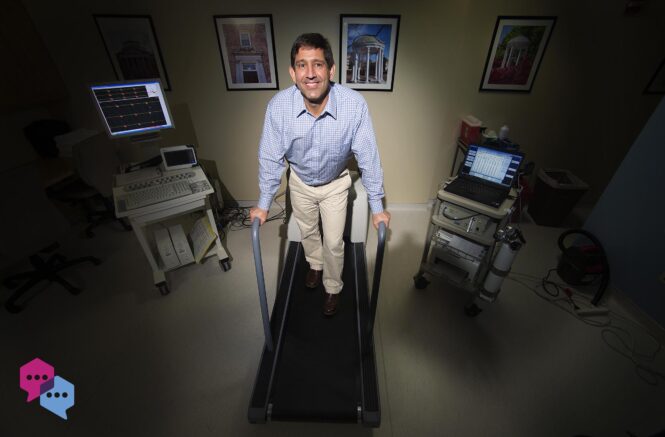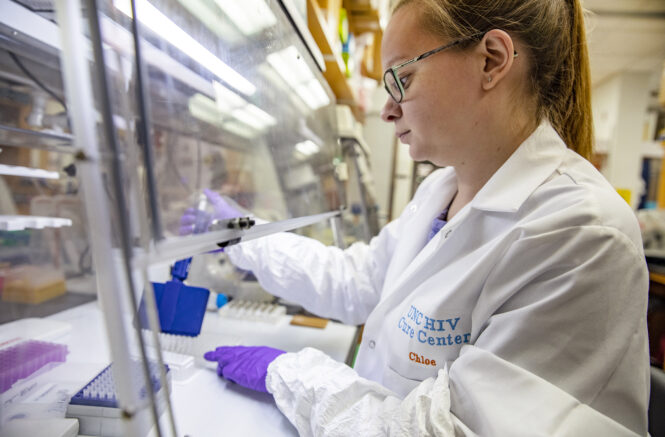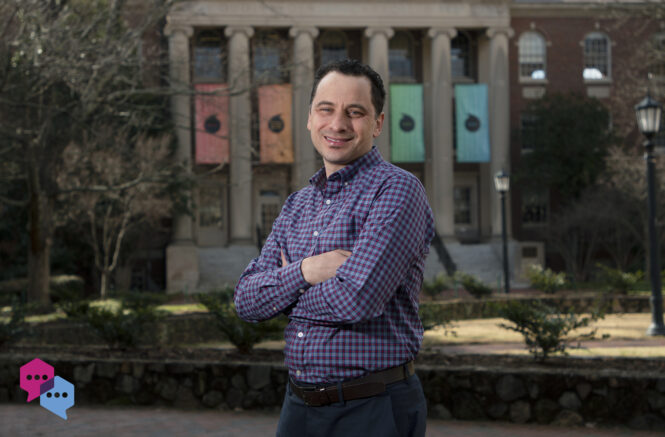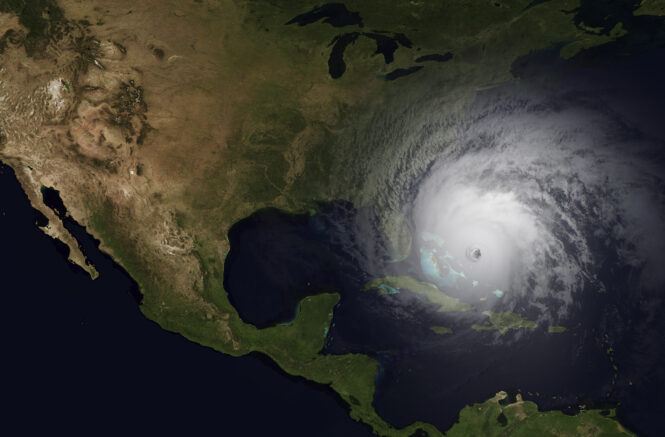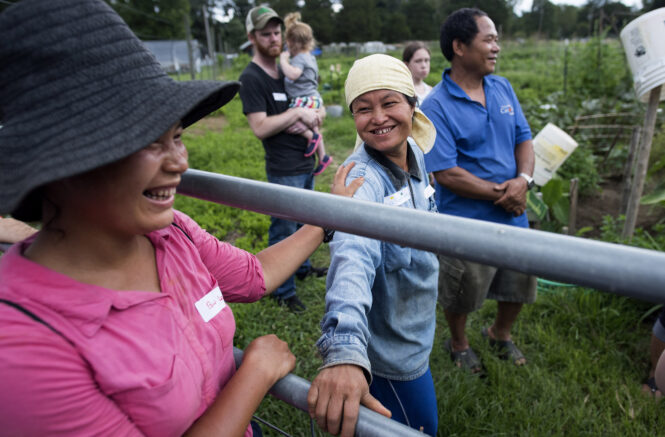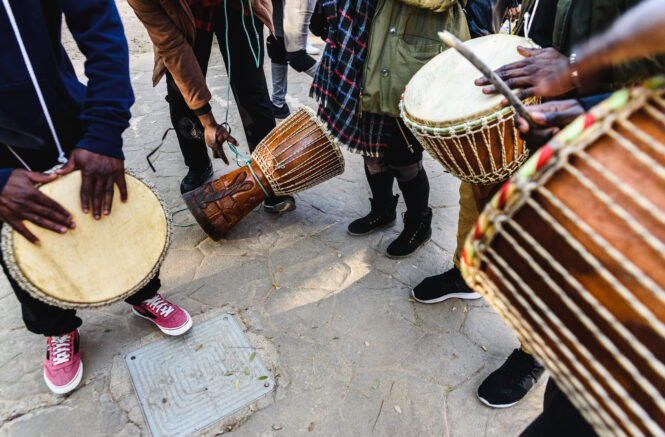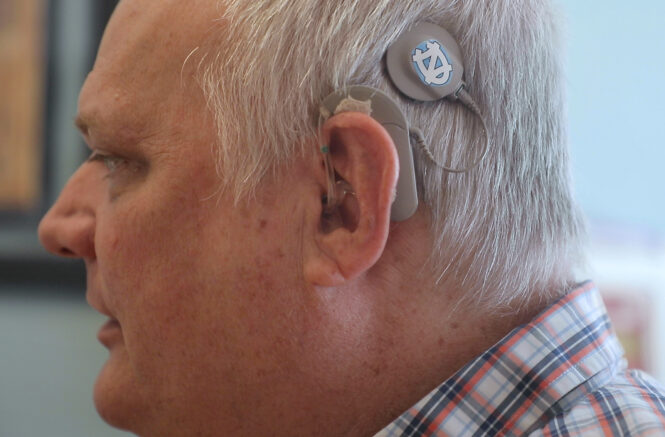Forging a Legacy
Over its 110-year history, journalism at Carolina has evolved from a single course in the Department of English into the internationally renowned UNC Hussman School of Journalism and Media. While the program has experienced exponential growth, its commitment to instilling students with innovative storytelling skills remains steadfast.
Claudio Battaglini
Claudio Battaglini is a professor of exercise physiology in the Department of Exercise and Sport Science within the UNC College of Arts & Sciences. He studies how exercise can help alleviate cancer treatment-related side effects.
The Formula for Reform
Jessica Smith is a professor within the UNC School of Government and director of the Criminal Justice Innovation Lab. Her decades-long career at Carolina has evolved alongside the state’s criminal justice system, which she has helped transform using an evidence-based formula for reform.
Nilu Goonetilleke
Nilu Goonetilleke is an assistant professor in the Department of Microbiology and Immunology within the UNC School of Medicine. She studies the immune cell response to several major human infections, like HIV, and develops strategies to limit the causes and spread of disease.
Expecting the Unexpected
After Myron Cohen watched the first patient at UNC Hospitals die from AIDS in 1982, he knew it was a disease to be reckoned with. He spent the next 40 years helping to recruit the most promising infectious disease experts from across the nation to build a program that’s become a leader in HIV. Today, UNC excels in understanding all aspects of HIV, from prevention to a potential cure — expertise that is now being used to tackle COVID-19.
Seth Noar
Seth Noar is a professor within the UNC Hussman School of Journalism and Media and a researcher at the UNC Lineberger Comprehensive Cancer Center. He studies how people can effectively use communication to change behavior and improve health.
An Active Storm Season
June 1 marked the start of the 2020 hurricane season — and it’s slated to be an active one. In this Q&A, UNC researcher Rick Luettich talks about this year’s above-average hurricane forecast, the impact these storms have on inland populations, and how COVID-19 may affect vulnerable communities.
For the Love of Language
Since 1984, over 100,000 Karen refugees have fled their homeland of Myanmar to escape civil war. Since then, more than 40,000 have resettled in the U.S., and more than 5,000 live in North Carolina. Such displacement greatly affects lives, and even language — within just three generations their native tongue is barely spoken. Linguistics PhD students Amy Reynolds and Jen Boehm strive to understand this shift and hope to preserve the Karen people’s histories in the process.
Crescendos of Creativity
Give Marc Callahan an opera and, in return, you’ll get an explosion of color, empathy, and sound — and a bit of mid-century flare snuck in for good measure. As the director of UNC Opera, Callahan teaches his students and audiences that this age-old art form offers so much more than singing on a stage: It’s a craft that requires creative research and a team of people to bring it to life.
Sounding the Alarm
Racial discrimination is not only a matter of sight — sound can also be racialized. Petal Samuel’s research traces colonial bans on drums and horns included in slave codes to modern-day noise abatement efforts in black communities.
Emily Hynes
Emily Hynes is a PhD student in the Department of Music within the UNC College of Arts & Sciences. She studies women who made music within prisons of the American South from the 1930s to '40s and creates interactive digital maps to convey this information.
Moments of Clarity
In the past, cochlear implants were employed in people with severe hearing loss, improving their ability to hear the conversations around them. But now, studies show that these devices offer benefits to patients with mild or moderate hearing loss - a group that UNC researchers and doctors are soliciting to receive cochlear implants as part of ongoing clinical trials.



